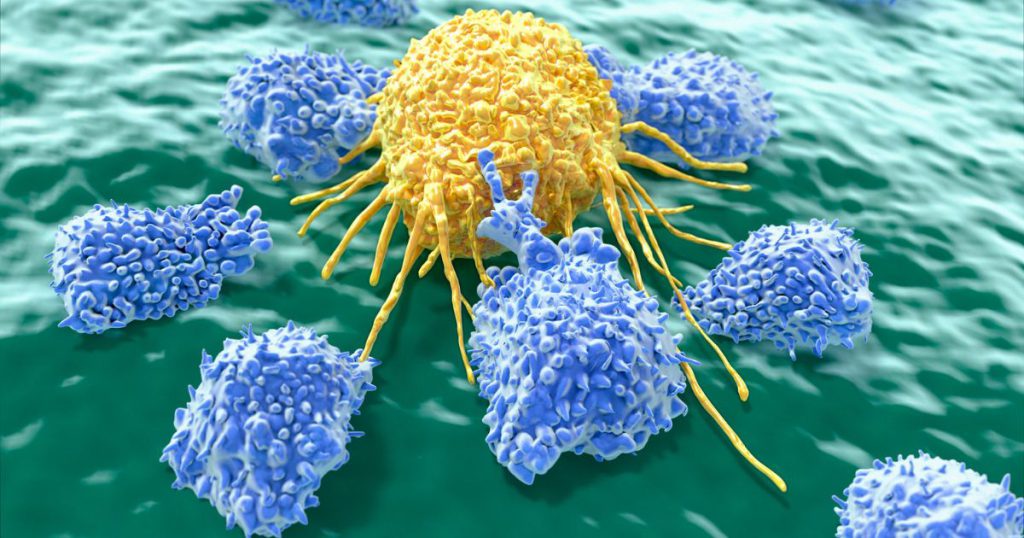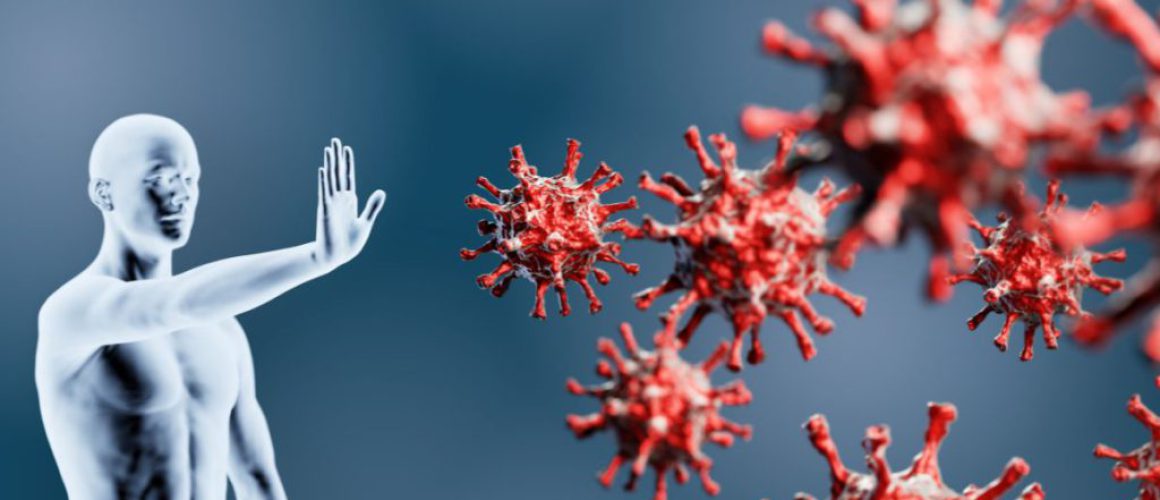The Immune System: Our Shield Against Invaders
Table of Contents
The Immune System: Our Shield Against Invaders
Introduction
Picture this: You’re walking through a bustling city, surrounded by countless people and objects. Yet, amidst this chaos, an invisible force is at work, diligently protecting you from harm. This powerful force is none other than your immune system – an extraordinary shield against invaders seeking to disrupt the delicate balance within your body. In this article, we will embark on an awe-inspiring journey to unravel the mysteries of “The Immune System: Our Shield Against Invaders.” Brace yourself as we dive into the intricate world of immune cells, the remarkable dance of defenses, and the impact of this shield on our overall health.
“The immune system is like a well-coordinated army, tirelessly defending our bodies against invaders, adapting to new threats, and maintaining the delicate balance of our health.”
The Immune System: Our Powerful Defense
Our immune system is like a highly trained army, ready to detect and neutralize any potential threats that come its way. Comprising a complex network of cells, tissues, and organs, it acts as our body’s natural defense mechanism against infectious agents, harmful substances, and even our own aberrant cells. From viruses and bacteria to allergens and cancer cells, our immune system stands strong, tirelessly working to maintain our well-being.

The immune system, composed of a complex network of cells, tissues, and organs, acts as our body’s defense against harmful invaders. At the forefront of this defense are the white blood cells, also known as leukocytes. These remarkable immune cells patrol our bloodstream, lymph nodes, and tissues, relentlessly seeking out and neutralizing potential threats. There are different types of white blood cells, including lymphocytes, monocytes, and granulocytes, each with unique functions in the immune response. Lymphocytes, such as B-cells and T-cells, orchestrate specific immune responses and play a vital role in the recognition and elimination of pathogens. Monocytes and granulocytes, on the other hand, engulf and destroy foreign particles through phagocytosis. Together, these white blood cells form a powerful defense army, safeguarding our body from infections and maintaining our overall health.
The Intricate Dance of Immune Cells
At the heart of our immune system are the remarkable immune cells that execute various defense strategies. Let’s meet some of these extraordinary warriors:
1. B-cells: The Antibody Producers
B-cells, also known as B lymphocytes, are the skilled archers of our immune system. They patrol our body, equipped with a vast repertoire of receptors that can recognize foreign invaders. When they encounter a threat, they spring into action, producing specialized proteins called antibodies. These antibodies tag the intruders, marking them for destruction by other immune cells.
B-cells, the remarkable antibody producers, play a vital role in our immune system’s defense strategy. Armed with an extensive arsenal of receptors capable of detecting foreign invaders, these vigilant B lymphocytes tirelessly patrol our bodies. Once they come face-to-face with a threat, their response is swift and efficient. B-cells unleash their secret weapon: the production of specialized proteins known as antibodies. These antibodies act as a lock-and-key mechanism, specifically targeting and binding to the intruders, effectively tagging them for elimination by other immune cells. It is through the incredible teamwork of B-cells and their antibody production that our immune system mounts an orchestrated attack against invaders, safeguarding our health and well-being.
2. T-cells: The Master Commanders
T-cells, also known as T lymphocytes, are the true maestros orchestrating the symphony of our immune system. Like skilled commanders, they possess distinct roles tailored to the task at hand. Among them, helper T-cells take center stage, expertly coordinating the immune response by issuing commands to other immune cells, effectively rallying the troops. These formidable leaders ensure that the immune system acts in unison to combat invading pathogens and maintain balance within the body. On the frontline, cytotoxic T-cells showcase their lethal prowess, engaging in direct combat with infected or abnormal cells. With precision and efficiency, they identify and eliminate the threats, ensuring the safety and well-being of our biological fortress.
In the intricate dance of immune defense, T-cells serve as vital players, executing their roles with precision and finesse. Their ability to adapt, communicate, and execute targeted responses enables our immune system to combat a wide array of invaders and maintain the delicate equilibrium of health. The fascinating interplay between helper T-cells and cytotoxic T-cells showcases the synergy of our immune system, where each component harmoniously contributes to the ultimate goal of safeguarding our well-being.
3. Natural Killer Cells: The Sentinels
Natural killer (NK) cells, the silent assassins of our immune system, possess a unique set of skills that make them formidable defenders. Like vigilant sentinels, they patrol our body, constantly scanning for cells that have fallen prey to viral infections or have undergone malignant transformation. Equipped with their remarkable ability to discriminate between healthy and unhealthy cells, NK cells swiftly unleash their cytotoxic weaponry, obliterating the threat and restoring order within our immune system. Their contributions to immune surveillance and tumor control highlight the crucial role they play in keeping our body’s defenses strong and our overall health in check. With each target they neutralize, NK cells demonstrate their unwavering dedication to maintaining our well-being, ensuring that any potential threats are swiftly eradicated.
Unraveling the Immune Response: A Symphony of Defenses
When an invader breaches our body’s barriers, the immune response kicks into high gear. It’s a meticulously choreographed symphony of defenses that aims to eliminate the threat. Here’s a glimpse into the fascinating stages of this orchestrated battle:
1. Recognition: Identifying Friend from Foe
In the vast battlefield of our body, the immune system acts as a vigilant sentinel, constantly on the lookout for invaders. But how does it distinguish between our own cells and the nefarious trespassers? The answer lies in the remarkable process of recognition.
Within the intricate framework of the immune system, specialized cells equipped with a keen sense of detection scour our body, diligently scanning for distinct molecules known as antigens. These antigens serve as the calling cards of pathogens or abnormal cells, enabling our immune system to identify them as potential threats. It’s like a secret handshake, a language that only the immune cells can understand.
With astonishing precision, immune cells engage in an elaborate dance, analyzing and interrogating the surface of cells they encounter. They meticulously examine the antigens, assessing their characteristics and determining whether they belong to our own tissues or belong to an unwelcome guest. This process of discrimination is a testament to the immune system’s remarkable intelligence and adaptability.
Through the art of recognition, our immune system acts as an astute judge, making split-second decisions to initiate the appropriate response. It is a constant game of sorting friend from foe, ensuring that our body remains fortified against potential threats while preserving the harmony of our own tissues.

2. Activation: Mobilizing the Troops
Once an antigen is detected, it’s like a call to arms for our immune system. The cells of our immune system receive the signal and begin their mobilization, preparing for a coordinated attack. It’s like an intricate dance of chemical messengers called cytokines that orchestrate the immune response.
Cytokines play a crucial role in communication between immune cells, ensuring that the right cells are activated and deployed to the site of infection or threat. They act as messengers, relaying important information and coordinating the response, much like a general issuing orders to their troops.
These chemical messengers instruct immune cells to multiply, differentiate, and become specialized to carry out specific tasks. Some cytokines enhance the inflammatory response, causing blood vessels to dilate and become more permeable, allowing immune cells to easily reach the affected area. Others activate specific types of immune cells, such as T-cells or B-cells, which play essential roles in eliminating the invading pathogens.
The activation phase is a crucial step in the immune response, as it ensures that the right cells are activated at the right time to mount an effective defense. It’s fascinating to think about the intricate communication network within our immune system, working tirelessly to mobilize the troops and protect our bodies from invaders.
Types of White Blood Cells
| White Blood Cell | Function |
|---|---|
| Neutrophils | Phagocytosis and elimination of pathogens |
| Lymphocytes | Coordinate immune responses and produce antibodies |
| Monocytes | Phagocytosis, antigen presentation, and tissue repair |
| Eosinophils | Defense against parasitic infections and control allergic responses |
| Basophils | Release histamine and other inflammatory mediators |
3. Effector Response: Engaging the Enemy
Armed with a clear mission, the immune cells spring into action, poised to combat the invaders. Like skilled warriors on a battlefield, they unleash their formidable weapons and execute their specialized tasks with precision. Antibodies, the elite soldiers of the immune system, bind to the antigens, rendering them harmless or flagging them for obliteration. These tiny but mighty molecules neutralize the threat, acting as a shield against further harm. Meanwhile, T-cells, armed with highly specialized receptors, act as the frontline soldiers, launching direct assaults on infected or abnormal cells, ensuring their swift elimination. And let’s not forget the natural killer cells, the silent assassins of the immune system, stealthily targeting and delivering a lethal blow to their unsuspecting adversaries. Together, these fearless immune warriors form an unstoppable force, tirelessly defending our bodies and preserving our health.
4. Memory Formation: Prepared for Future Battles
As the immune system valiantly battles against current threats, it simultaneously prepares for future encounters. Within its ranks, certain immune cells possess a remarkable ability to remember past invaders, arming themselves with invaluable knowledge. This memory formation is like a strategic advantage, enabling the immune system to mount a rapid and robust defense if the same foe dares to reappear on the battlefield. It’s akin to having a well-organized intelligence network that never forgets a face or a tactic. This immunological memory is a key principle behind the effectiveness of vaccinations, as it provides our bodies with long-term protection against specific pathogens. Just like a seasoned warrior, the immune system stands ready to face future battles with the wisdom and strength acquired from past triumphs.
The Immune System and Disease: From Allergies to Autoimmunity
As remarkable as our immune system is, it can sometimes go awry, leading to various disorders. Let’s explore a few examples:
1. Allergies: Overreacting to Harmless Substances
In individuals with allergies, our immune system’s highly sensitive radar goes on high alert, mistakenly identifying harmless substances as potential threats. It’s like a case of mistaken identity where pollen, certain foods, or even a cuddly pet can be perceived as dangerous intruders. And that’s when the chaos ensues.
Once our immune system identifies these innocent substances as foes, it launches a full-scale attack. The result? An exaggerated immune response that can send our bodies into a frenzy. Sneezing fits, itchy eyes, scratchy throat, and difficulty breathing become the uninvited guests in our lives. Allergies have a way of turning the simplest pleasures, like a blooming flower or a delightful meal, into potential battlegrounds.
Allergies come in various forms, ranging from mild discomfort to life-threatening reactions. For some, it may mean enduring seasonal sniffles or the occasional itchiness. Others face more severe challenges, such as anaphylaxis, a severe allergic reaction that can rapidly escalate and lead to a life-threatening situation. It’s crucial for individuals with allergies to identify their triggers, take preventive measures, and be prepared with necessary medications in case of an emergency.
The impact of allergies extends beyond the physical symptoms, affecting our daily lives and overall well-being. From avoiding certain foods to meticulously checking ingredient labels, allergies can be a constant reminder of the delicate balance between our immune system’s vigilance and its occasional overzealousness.
Common Allergens
| Allergen | Common Sources |
|---|---|
| Pollen | Trees, grasses, weeds |
| Dust mites | Bedding, upholstered furniture, carpets |
| Pet dander | Cats, dogs, rodents |
| Mold | Damp environments, decaying matter |
| Insect venom | Bee stings, wasp stings |
| Certain foods | Peanuts, shellfish, dairy, eggs |
| Medications | Penicillin, aspirin, antibiotics |
| Latex | Gloves, balloons, rubber products |
| Chemicals | Fragrances, cleaning agents |
| Metals | Nickel, cobalt, chromium |
2. Autoimmune Diseases: A Case of Mistaken Identity
Autoimmune diseases occur when the immune system mistakenly attacks the body’s own cells and tissues. Conditions like rheumatoid arthritis, lupus, and multiple sclerosis can arise when the immune system fails to recognize self from non-self. This leads to chronic inflammation and damage to organs or tissues.
Autoimmune diseases are like puzzles that perplex both patients and medical professionals alike. In these conditions, the immune system, our shield against invaders, turns against our own cells and tissues, creating a case of mistaken identity. It’s as if our immune system, usually a vigilant protector, suddenly loses its sense of self. Instead of focusing its defenses on harmful invaders, it launches an unwarranted attack on our own body.
Conditions such as rheumatoid arthritis, lupus, multiple sclerosis, and many others fall under the umbrella of autoimmune diseases. Each disease has its unique characteristics and affects different parts of the body. Despite their diverse manifestations, they share a common thread—chronic inflammation and the potential for damage to organs or tissues.
Living with an autoimmune disease can be challenging, as symptoms can vary widely and impact multiple aspects of daily life. The road to diagnosis can be long and arduous, often requiring a careful evaluation of symptoms, medical history, and specialized testing. Treatment approaches aim to manage symptoms, control inflammation, and modulate the immune response to restore balance within the body.

3. Immunodeficiencies: Weakened Defenses
Immunodeficiencies, as the name suggests, refer to conditions where the immune system’s defenses are weakened, leaving individuals more vulnerable to infections and illnesses. These conditions can arise from various factors, including genetic defects, certain medications, or underlying health conditions.
In some cases, individuals are born with genetic defects that affect the proper functioning of immune cells. These defects can impair the immune system’s ability to recognize and combat pathogens effectively. As a result, even simple infections can pose a significant threat to their health. Such individuals often require specialized medical care and interventions to manage and strengthen their immune responses.
On the other hand, immunodeficiencies can also be acquired later in life due to external factors. Certain medications, such as those used in cancer treatments or to suppress the immune system after an organ transplant, can weaken the immune system’s capabilities. Additionally, underlying health conditions like HIV/AIDS, autoimmune disorders, or chronic diseases can compromise the immune system, making individuals more susceptible to infections.
Immunodeficiencies can range from mild to severe, with varying degrees of impact on an individual’s health. While some individuals may experience only occasional infections or mild symptoms, others may face recurrent and severe infections that require ongoing medical intervention and management. It is crucial for individuals with immunodeficiencies to work closely with healthcare professionals to monitor their immune health, receive appropriate treatments, and take necessary precautions to reduce the risk of infections.
Common Immune System Disorders
| Disorder | Description |
|---|---|
| Allergies | Immune response to harmless substances, leading to allergic reactions |
| Autoimmune Diseases | Immune system attacks healthy cells and tissues |
| Immunodeficiencies | Weakened immune system, making individuals more susceptible to infections |
| Rheumatoid Arthritis | Chronic autoimmune condition affecting joints |
| Lupus | Systemic autoimmune disease affecting multiple organs |
Strengthening Our Shields: Boosting Immune Health
A strong immune system is essential for our well-being. While we cannot control every aspect of our immune response, there are steps we can take to support its function:
1. Maintain a Healthy Lifestyle
When it comes to our immune health, maintaining a healthy lifestyle is key. It’s not just about eating an apple a day or hitting the gym occasionally; it’s about making conscious choices that support our body’s defense system. As a medical technology student, I’ve come to appreciate the significance of a balanced diet, regular exercise, and sufficient sleep in bolstering our immune health.
A balanced diet forms the foundation of a strong immune system. By incorporating a variety of fruits, vegetables, whole grains, and lean proteins into our meals, we provide our bodies with the essential vitamins, minerals, and antioxidants needed to support immune cell function. These nutrients act as fuel for our immune system, enabling it to fight off infections and maintain optimal performance.
Engaging in regular exercise is another vital aspect of immune health. Physical activity not only helps to keep our bodies fit but also plays a crucial role in strengthening our immune defenses. Exercise improves circulation, allowing immune cells to circulate more efficiently throughout the body. It also promotes the release of endorphins, which help reduce stress and enhance overall well-being. So, whether it’s going for a brisk walk, hitting the gym, or trying out a new fitness class, finding enjoyable ways to stay active can do wonders for our immune system.
Lastly, we mustn’t overlook the importance of quality sleep in supporting our immune health. During sleep, our bodies undergo essential repair processes and produce key immune molecules that help combat infections. Lack of sleep can weaken our immune system and make us more susceptible to illnesses. Therefore, it’s crucial to prioritize sleep hygiene by establishing a consistent sleep schedule, creating a peaceful sleep environment, and practicing relaxation techniques to ensure we get the restorative sleep our bodies need.
Immune System Boosting Foods
| Food | Description |
|---|---|
| Citrus Fruits | Rich in vitamin C, which supports immune cell function |
| Berries | Packed with antioxidants that help protect the immune system |
| Garlic | Contains compounds that enhance immune cell activity |
| Yogurt | Probiotics in yogurt support the gut microbiome and immune function |
| Spinach | High in vitamins and minerals that support immune health |
2. Manage Stress
In the hustle and bustle of daily life, stress can creep in and impact our immune system’s resilience. As a busy student juggling multiple responsibilities, I understand firsthand the toll that chronic stress can take on our well-being. Interestingly, our immune system and stress response are closely intertwined, with stress hormones influencing immune cell activity and communication.
To safeguard our immune health, it’s crucial to prioritize stress management. Embracing mindfulness practices, such as meditation or deep breathing exercises, can help calm the mind and promote a sense of inner peace. Engaging in hobbies and activities that bring joy and relaxation can provide a much-needed respite from the demands of everyday life.
Furthermore, seeking support from loved ones, whether through heartfelt conversations or quality time together, can foster a strong support system that buffers against stress. Sharing our experiences, thoughts, and concerns with trusted individuals can provide a sense of relief and help us navigate challenging times.
3. Practice Good Hygiene
In our daily lives, practicing good hygiene is essential to safeguard our well-being and support the optimal functioning of our immune system. It’s remarkable how simple measures like proper handwashing, covering our mouth when coughing or sneezing, and avoiding close contact with individuals who are sick can make a world of difference in reducing the risk of infections.
Functions of the Immune System
- Recognizing and eliminating foreign invaders such as bacteria, viruses, and fungi.
- Forming a memory of past infections to mount faster and more effective responses in the future.
- Regulating immune responses to prevent excessive inflammation and damage to healthy tissues.
- Destroying cancerous cells through immune surveillance and immune-mediated killing.
- Supporting tissue repair and regeneration after infections or injuries.
Beyond Protection: The Immune System’s Impact on Overall Health
The immune system’s influence extends beyond fighting off infections. It plays a crucial role in our overall health, impacting various aspects of our well-being:
1. Inflammation Regulation
When it comes to our immune system’s role in managing inflammation, balance is key. Inflammation is a normal and necessary response that helps our bodies fight off infections and heal injuries. But what happens when inflammation goes awry?
Chronic inflammation, a persistent and prolonged state of inflammation, can wreak havoc on our health. It has been linked to a range of conditions, including cardiovascular diseases, diabetes, and even certain types of cancer. Understanding how to regulate inflammation becomes crucial in maintaining our long-term well-being.
The immune system plays a vital role in the regulation of inflammation. It has sophisticated mechanisms to activate and control the inflammatory response. When an injury or infection occurs, immune cells release chemical signals that initiate inflammation and recruit other immune cells to the site. These cells work together to eliminate the threat and initiate the healing process.
However, problems arise when inflammation persists for an extended period, even in the absence of an active threat. This chronic inflammation can lead to tissue damage, disrupt normal bodily functions, and contribute to the development of chronic diseases. Therefore, it is essential to maintain a balanced immune response, where inflammation is appropriately controlled and resolved when it is no longer needed.
2. Tissue Repair and Healing
In the face of injuries and wounds, our remarkable immune system takes charge to facilitate the complex process of tissue repair and healing. Like a skilled conductor, it orchestrates a symphony of immune cells and molecular signals, working in harmony to restore damaged tissues and promote recovery.
Upon injury, the immune system springs into action, swiftly mobilizing an army of specialized cells to the site of damage. Neutrophils, the first responders of the immune system, arrive to clear away debris and ward off potential infections. These tiny warriors engulf and digest foreign particles, ensuring a clean environment for the healing process to commence.
Next, immune cells known as macrophages take center stage. These versatile cells not only continue the crucial task of debris removal but also release growth factors and cytokines that support cell proliferation and tissue reconstruction. They act as architects and builders, creating a favorable environment for cells to multiply, connect, and reestablish the structural integrity of the damaged tissues.
The immune system also relies on an array of specialized cells called fibroblasts to aid in tissue repair. Fibroblasts play a crucial role in the production and organization of collagen, the protein that forms the framework for new tissue formation. Collagen fibers weave together, providing strength and stability to the healing site.
As the healing process progresses, an intricate balance between immune responses and anti-inflammatory signals comes into play. Excessive inflammation can impede the healing process, while an insufficient immune response may delay recovery. The immune system’s intricate regulation ensures that the right signals are sent at the right time, allowing for an optimal healing environment.
3. Cancer Surveillance
Within the intricate landscape of our immune system lies a remarkable process known as cancer surveillance. Like vigilant sentinels, natural killer cells, cytotoxic T-cells, and other immune warriors tirelessly scan our body, ever watchful for cells that have undergone malignant transformations. Their mission? To detect and eliminate these rogue cells before they have a chance to wreak havoc and cause disease.
Natural killer cells, with their innate ability to recognize and destroy abnormal cells, are instrumental in the early detection and elimination of cancerous cells. These powerful immune soldiers are armed with a diverse array of receptors that allow them to distinguish between healthy cells and those harboring malignant changes. When a cancerous cell is identified, natural killer cells unleash a flurry of attacks, releasing toxic substances that induce cell death and thwart the further progression of the disease.
Cytotoxic T-cells, another formidable component of our immune system, possess the ability to recognize specific antigens present on cancer cells. These specialized warriors not only directly attack cancerous cells but also mobilize other immune cells to join the fight. Through a complex series of signals and interactions, cytotoxic T-cells orchestrate a coordinated immune response, unleashing a cascade of destructive forces upon the cancerous invaders.
Enhancing the immune response holds great promise in the field of cancer prevention and treatment. By harnessing the power of our immune system, researchers and clinicians are exploring innovative immunotherapies that unleash a targeted assault on cancer cells, sparing healthy tissues and minimizing side effects. From checkpoint inhibitors to CAR-T cell therapy, these groundbreaking approaches are revolutionizing cancer care and offering new hope to patients and their families.
Conclusion
The immune system is an extraordinary defense mechanism that safeguards our bodies against invaders. It is a complex network of cells, tissues, and organs working harmoniously to protect us from harmful pathogens, maintain our health, and promote overall well-being.
Understanding the intricate workings of the immune system empowers us to make informed choices that strengthen its function and optimize our immune health. By adopting a healthy lifestyle, practicing good hygiene, managing stress, and staying up to date with immunization recommendations, we can fortify our immune defenses and reduce the risk of infections and diseases.
As we navigate our way through an ever-changing world, let us not underestimate the power of our immune system. By respecting and nurturing it, we can harness its full potential and unleash the remarkable capabilities of our body’s natural defense.
So, embrace a healthy lifestyle, stay curious, and explore the wonders of immunology. Together, let us celebrate the marvels of our immune system and strive for a future where health and well-being thrive.
Call to Action
Are you ready to unlock the secrets of your immune system and take charge of your health? Dive deeper into the fascinating world of immunology and explore the wonders of the human body. Visit the Immunology category on my blog to discover more captivating articles and gain a deeper understanding of the immune system and its role in our lives.
Stay informed, stay curious, and let the wonders of immunology inspire you to make informed choices that support your immune health. Together, we can harness the power of our immune system and embark on a journey towards optimal well-being.
Remember, your immune system is your shield against invaders. Empower yourself with knowledge and embrace a healthy lifestyle to unleash the full potential of your immune defense.
Frequently Asked Questions
How does the immune system protect our body from infections?
The immune system defends our body from infections through a coordinated response involving various components. When pathogens invade our body, the immune system recognizes them as foreign and launches an immune response. White blood cells, such as lymphocytes, produce antibodies that bind to the pathogens, neutralizing them and marking them for destruction. Other immune cells, like macrophages and neutrophils, engulf and destroy the invaders. This orchestrated defense mechanism helps eliminate infections and restore our health.
Can the immune system become overactive and cause problems?
Yes, in certain circumstances, the immune system can become overactive and cause problems. Allergies and autoimmune diseases are examples of immune system disorders. Allergies occur when the immune system overreacts to harmless substances, such as pollen or certain foods, triggering symptoms like sneezing, itching, and wheezing. Autoimmune diseases, on the other hand, occur when the immune system mistakenly attacks healthy cells and tissues, leading to conditions like rheumatoid arthritis or lupus. Managing these conditions typically involves medications that help regulate the immune response and reduce symptoms.
Can lifestyle choices impact the immune system’s function?
Yes, lifestyle choices can have a significant impact on the immune system’s function. Maintaining a healthy lifestyle can help support a robust immune response. Adequate sleep, regular exercise, and a balanced diet rich in fruits, vegetables, and whole grains provide essential nutrients and promote overall immune health. Additionally, managing stress levels, avoiding smoking, and limiting alcohol consumption can also contribute to a well-functioning immune system. By adopting these healthy habits, we can enhance our body’s natural defense and improve our overall well-being.
Sources
Sean Schepers is a third-year Medical Technology student at Mahidol University with a passion for all things health and medicine. His journey into the world of medicine has led him to explore various fields. Sean's blog posts offer a unique perspective, combining his academic insights with personal experiences. When he's not studying or blogging, Sean enjoys keeping up with politics and planning his future career in medicine.
In addition to his studies, Sean serves as the chairman of the Rights, Liberties, and Welfare Committee, a role that reflects his commitment to advocacy and social justice. Beyond his academic pursuits, Sean offers tutoring services in English and Biology, further demonstrating his dedication to education and mentorship. His journey is one of continuous discovery, and he invites others to join him as he explores the dynamic and transformative world of medical technology.


